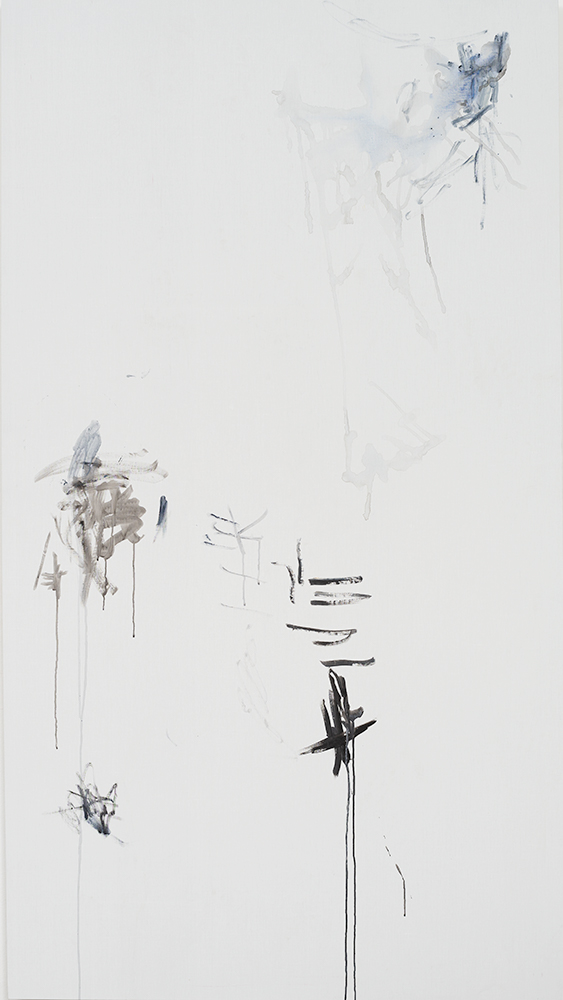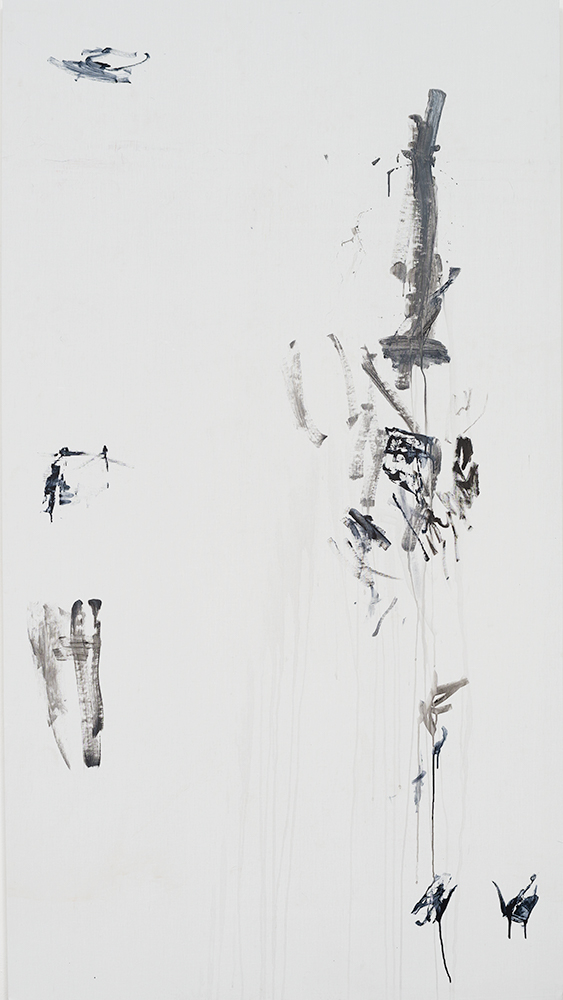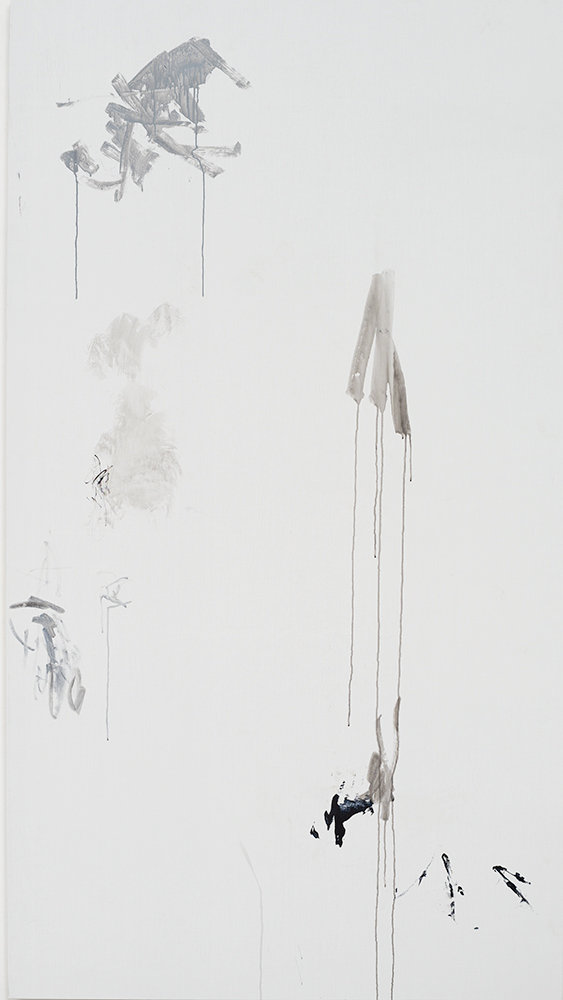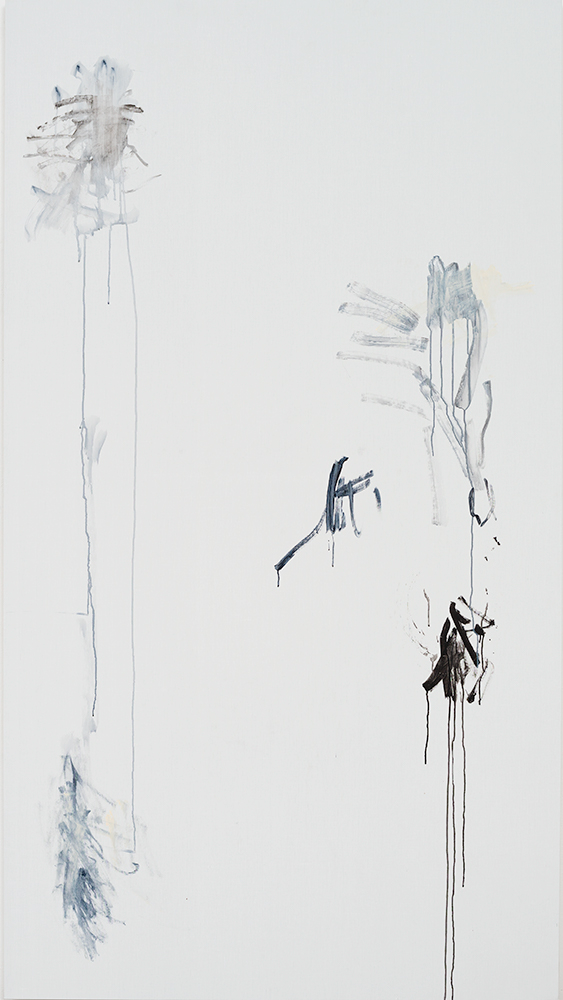Brasília, January 1st, 2019. President-elect Jair Messias Bolsonaro took office after a tense and fierce electoral battle. During his campaign, the then candidate declared, in one of the few interviews he granted at the time, that affirmative policies are measures that reinforce prejudice and “can not continue to exist. Everything is ‘poorism’. Poor black guy, poor woman, poor gay, poor nordestino, poor piauiense. We will put an end to this.” The Fugue series intends to encourage a reflection on the importance of the intensification of the so-called affirmative policies in Brazil today. The four abstract paintings have a portrait on the back – invisible to the naked eye – of a woman with a child. Each one of them belongs to a group that is vulnerable to violence in Brazil, either because of their race, their gender, their sexuality or because of where they come from. The title of each of the paintings – Celia, Gekidel, Karen e Yeremi – corresponds to the names of women from Venezuela who were attacked, raped and prostituted in Brazil while seeking refuge from the political, social and economic crisis that plagues their country of origin. Thousands of people in vulnerable situations seek asylum in Brazil, a country whose government attempts to cover-up the drastic increase in the number of murders of blacks, indigenous people, women, homosexuals and transgender people.
Download the app
Celia

A survey conducted by the National Secretariat for Policies for the Promotion of Racial Equality (SEPPIR) and the Federal Senate concluded that 56% of the Brazilian population agrees with the following statement: “the violent death of a young black person shocks society less than the death of a young white person.” In Brazil seven out of ten people murdered are black. There are 63 people killed per day, totalling 23,000 people per year. A young black man is killed every 23 minutes, and the chances of a black girl aged between 15 and 19 being murdered are 2.19 times higher than those of her white friends.
Gekidel

According to the Inter-American Commission on Human Rights (IACHR), 126 women were killed in Brazil and 67 attempted murders were registered in January 2019. The IACHR emphasizes that the murder of women is not an isolated problem. They are symptoms of a pattern of gender violence, resulting from sexist, male chauvinistic values that are deeply rooted in Brazilian society. Women in Brazil are in a state of vulnerability due to their ethnic-racial origin, sexual orientation, financial situation or political position.
Karen

Studies carried out by the NGO Transgender Europe (TGEU) report that Brazil is the country with the highest murder rate of transsexuals in the world. TGEU makes it clear that it is impossible to make a real estimate of the number of homicides of transsexual and non-binary people because this data is generally not even specified. In Brazil, 90% of transvestites and transsexuals use prostitution as a source of income and the only possibility for survival, since, besides being subject to social, family and school exclusion, they also find it difficult to find a job in the formal labour market.
Yeremi

According to the United Nations (UN), the number of Venezuelan refugees and immigrants in Brazil will double in 2019. Venezuelans will continue to flee from hunger, from the lack of housing and from the violence in their home country. In Roraima, a state where the rate of feminicide has increased by 139% in five years, Venezuelans prostitute themselves to survive. Brazilians attack and burn the few belongings that the already frightened newcomers possess. The number of people estimated to leave Venezuela by the end of 2019 could reach 5.3 million. Of this group, at least 460,000 are children.